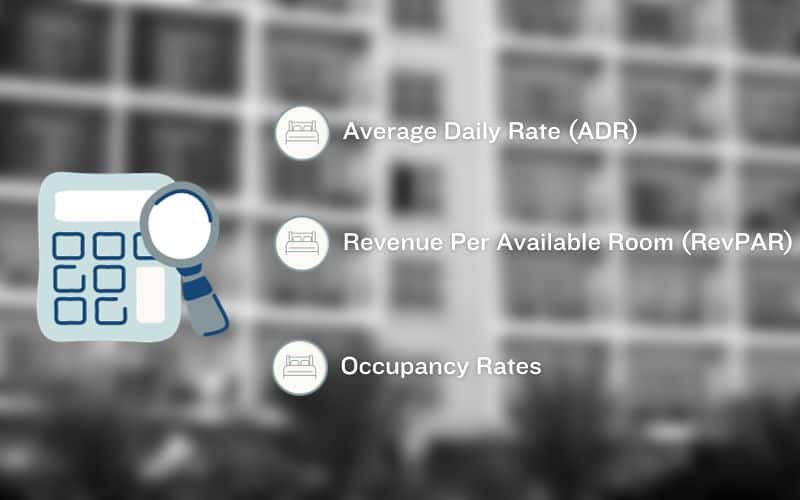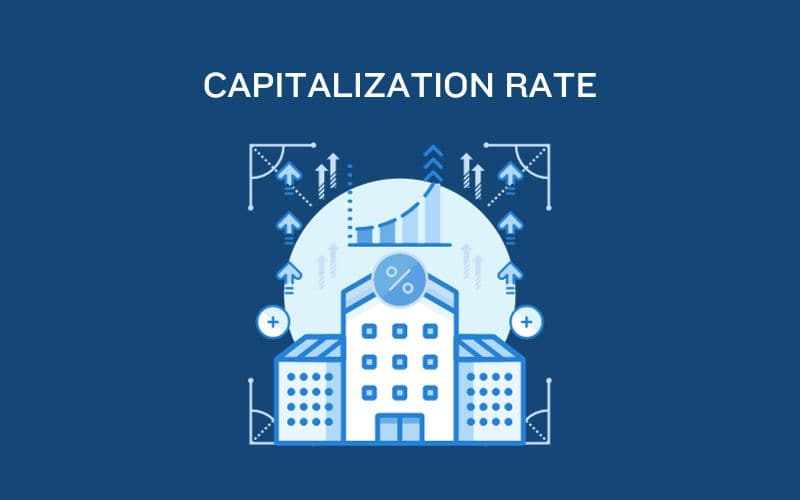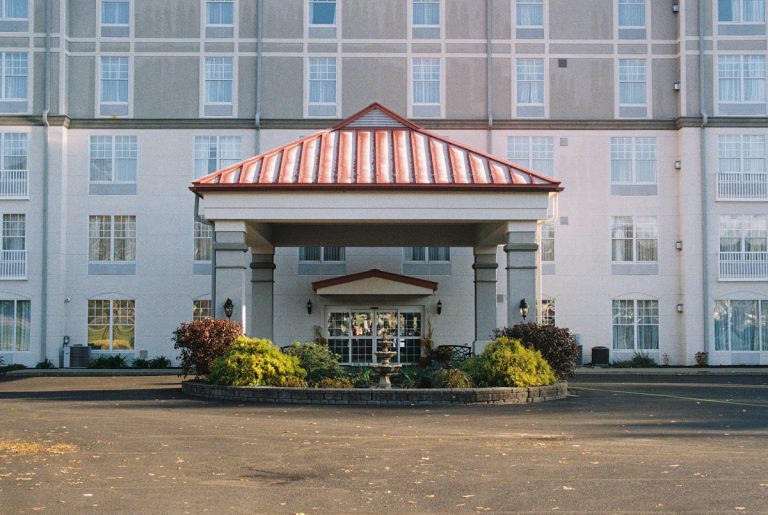Are you looking to buy or invest in a hotel but unsure how to determine its value? Valuing a hotel property involves more than just looking at the price tag. You must consider location, amenities, occupancy rates, revenue, expenses, and local market conditions.
This comprehensive guide will walk you through conducting a proper valuation of a hotel property so you can make an informed investment decision.
If you’re short on time, here’s a quick answer: The value of a hotel is determined by analyzing metrics like average daily rate (ADR), revenue per available room (RevPAR), net operating income (NOI), cap rate, occupancy percentage, and the local real estate market.
An appraisal combines these factors to estimate the hotel’s market value.
Calculate the Hotel’s Revenue Metrics

When valuing a hotel, it is crucial to understand and calculate its revenue metrics. These metrics provide valuable insights into the hotel’s financial performance and help determine its overall value. Here are three key revenue metrics to consider:
Average Daily Rate (ADR)
The Average Daily Rate (ADR) is a hotel’s most important revenue metric. It is calculated by dividing the total revenue from room sales by the number of rooms sold.
A higher ADR indicates that the hotel can command higher room rates and generate more revenue per room. On the other hand, a lower ADR may suggest that the hotel is facing challenges in attracting guests or has lower room rates compared to its competitors.
Revenue Per Available Room (RevPAR)
RevPAR is another crucial metric used to evaluate a hotel’s financial performance. It is calculated by multiplying the ADR by the occupancy rate. RevPAR provides a comprehensive view of how effectively a hotel is utilizing its available rooms to generate revenue.
A higher RevPAR indicates higher revenue generation, while a lower RevPAR may suggest that the hotel needs to improve its occupancy rates or increase its ADR to maximize revenue.
Occupancy Rates
Occupancy rates measure the percentage of available rooms occupied during a specific period. It is calculated by dividing the number of rooms occupied by the total available rooms. Occupancy rates directly impact a hotel’s revenue as they determine the utilization of its rooms.
High occupancy rates indicate a high hotel room demand and can lead to higher revenue. Conversely, low occupancy rates may indicate that the hotel needs to implement strategies to attract more guests and increase room bookings.
It is important to note that the revenue metrics mentioned above should be analyzed in conjunction with other factors such as market conditions, location, competition, and the hotel’s target market. A comprehensive evaluation of these revenue metrics will provide a more accurate understanding of a hotel’s value and financial performance.
Also Read: Effective Strategies to Boost Hotel Occupancy Rates
Analyze the Hotel’s Financials

When valuing a hotel, one of the first steps is to analyze its financials. This involves examining key financial metrics to determine the hotel’s profitability and overall financial health. By understanding the hotel’s financial performance, investors and potential buyers can make informed decisions about its value.
Revenue
The revenue generated by a hotel is a crucial factor in its valuation. This includes income from room bookings, food and beverage sales, conference and event bookings, and other ancillary services.
Analysts typically review historical financial statements to assess the hotel’s revenue, including income statements and revenue breakdowns by department.
It’s important to consider the hotel’s revenue growth over time. Is the hotel experiencing steady growth, or has there been a decline in revenue? Market demand, competition, and economic conditions can impact a hotel’s revenue performance.
Analyzing industry trends and benchmarking against similar hotels can provide valuable insights into the hotel’s revenue potential.
Also Read: 8 Proven Strategies to Increase Your Hotel Revenue
Operating Expenses
In addition to revenue, analyzing the hotel’s operating expenses is crucial for determining its profitability. Operating expenses include labor, utilities, maintenance, marketing, and other day-to-day expenses.
By examining these expenses, analysts can assess the hotel’s efficiency and identify areas for potential cost savings.
It’s important to consider the hotel’s operating expense ratio, the percentage of revenue allocated towards operating expenses. A lower operating expense ratio indicates better cost management and higher profitability.
Benchmarking the hotel’s operating expenses against industry averages can provide insights into its efficiency and competitiveness.
Net Operating Income (NOI)
Net Operating Income (NOI) is a key metric used to determine the value of a hotel. It represents the hotel’s total revenue minus its operating expenses. NOI is a measure of the hotel’s profitability before accounting for debt service and taxes.
Investors and potential buyers often use the hotel’s NOI to calculate its capitalization rate or cap rate, which is the rate of return on an investment property. The cap rate is used to estimate the value of the hotel based on its expected income stream.
A higher NOI and lower cap rate typically indicate a more valuable hotel.
When analyzing a hotel’s financials, it’s important to consider historical performance and future projections. Industry reports, market research, and financial analysis tools can provide valuable insights into the hotel’s financial health and potential for growth.
For more information on hotel valuation and financial analysis, visit websites such as HVS or Hospitality Net.
Determine the Capitalization Rate

The capitalization rate, or cap rate, is crucial in valuing a hotel. It estimates the property’s value based on its income potential. The cap rate is calculated by dividing the net operating income (NOI) of the hotel by its market value.
Step 1: Calculate the Net Operating Income (NOI)
To determine the NOI, you must subtract all operating expenses from the hotel’s total revenue. Operating expenses include utilities, salaries, maintenance, and insurance.
It’s important to consider fixed and variable expenses to understand the hotel’s profitability accurately.
Step 2: Research Market Cap Rates
It’s essential to research the market cap rates for hotels in the area to get a benchmark. This can be done by analyzing recent sales data or consulting real estate professionals specializing in hotel properties.
Different types of hotels may have different cap rates, so it’s crucial to consider the specific market segment.
Step 3: Apply the Cap Rate Formula
Once you have the NOI and the market cap rate, you can calculate the estimated value of the hotel. The formula is simple: Value = NOI / Cap Rate. For example, if the NOI is $500,000 and the market cap rate is 8%, the estimated value of the hotel would be $6,250,000.
It’s important to note that the cap rate is just one method of valuing a hotel and should be used in conjunction with other valuation methods. Factors such as location, market conditions, and future growth potential should also be considered when determining a hotel’s value.
For more information on hotel valuation and industry trends, visit reputable websites like Hotel News Resource or Hotel Management. These websites provide valuable insights and data to help you make informed decisions when valuing a hotel.
Examine Local Real Estate Market Conditions
When valuing a hotel, examining the local real estate market conditions is crucial. This step will give you an understanding of the current state of the market and help you determine the value of the hotel. Here are a few key factors to consider:
Competitor Hotels
Start by researching the competitor hotels in the area. Look at their occupancy rates, average daily rates, and overall performance in the market. This information will give you an idea of the demand for hotel rooms in the area and how your hotel compares to others.
Websites like TripAdvisor and Booking.com can provide valuable insights into the performance of competitor hotels.
Recent Sales Data
Another important aspect to consider is recent sales data of hotels in the area. Look at the prices at which similar hotels have been sold and how long they were on the market. This information will indicate the current market value and help you make an informed decision.
Websites like LoopNet or Realtor.com can provide you access to recent sales data in the real estate market.
Future Development Plans
Lastly, it is essential to consider any future development plans in the area. New hotels, attractions, or infrastructure projects can significantly impact the value of your hotel.
Research city planning documents and news articles, or consult with local authorities to stay informed about upcoming developments that may affect the hotel market.
This information will help you assess the potential growth or decline of the hotel’s value in the future.
By examining the local real estate market conditions, including competitor hotels, recent sales data, and future development plans, you can gain valuable insights into the value of a hotel. Remember to gather as much data as possible and consider consulting with industry professionals to ensure an accurate valuation.
Obtain an Appraisal

One of the most important steps when valuing a hotel is obtaining a professional appraisal. An appraisal is a comprehensive evaluation of the hotel’s value conducted by a qualified appraiser.
This process thoroughly analyzes various factors contributing to the property’s overall value.
Why Is an Appraisal Important?
An appraisal objectively assesses the hotel’s worth, considering factors such as location, size, condition, amenities, and market trends. It helps hotel owners, investors, and lenders make informed decisions about buying, selling, or financing the property.
During the appraisal process, the appraiser will gather relevant information, such as financial statements, occupancy rates, and market data, to determine the hotel’s income potential and market value.
They will also consider factors like the hotel’s reputation, customer reviews, and industry competition.
How to Find a Qualified Appraiser?
It is crucial to hire a qualified appraiser with expertise in valuing hotels. Look for appraisers who hold professional designations such as MAI (Member of the Appraisal Institute) or ASA (Accredited Senior Appraiser).
These designations indicate that the appraiser has met strict educational and experience requirements.
You can find qualified appraisers through professional appraisal organizations like the Appraisal Institute (www.appraisalinstitute.org) or the American Society of Appraisers (www.appraisers.org).
Additionally, you can ask for recommendations from real estate agents, attorneys, or other professionals in the hospitality industry.
What to Expect From an Appraisal?
During the appraisal process, the appraiser will typically conduct a site visit to inspect the hotel’s physical condition, amenities, and overall appeal. They will also review financial statements, occupancy reports, and other relevant documents to assess the hotel’s financial performance.
After gathering all the necessary information, the appraiser will use various valuation methods, such as the income approach, market approach, and cost approach, to determine the hotel’s value. The final appraisal report will include a detailed analysis of the hotel’s strengths, weaknesses, and market position.
It’s important to note that an appraisal is an opinion of value based on the appraiser’s professional judgment. While it provides a valuable estimate of the hotel’s worth, the actual sale price may vary depending on market conditions and negotiations between buyers and sellers.
Also Read:
How to Finance a Hotel: A Comprehensive Guide for Hotel Owners and Investors
Is Buying A Hotel A Good Investment?
Conclusion
Valuing a hotel requires a comprehensive analysis of its revenue metrics, finances, market position, and future outlook. While the sales price offers a starting point, truly understanding a hotel’s worth involves diving deeper into the property’s performance, profitability, and growth opportunities.
An experienced appraiser can synthesize these factors into a valuation that reflects the hotel’s fair market value. With the right approach and market data, you can determine an accurate value that supports your investment goals.






